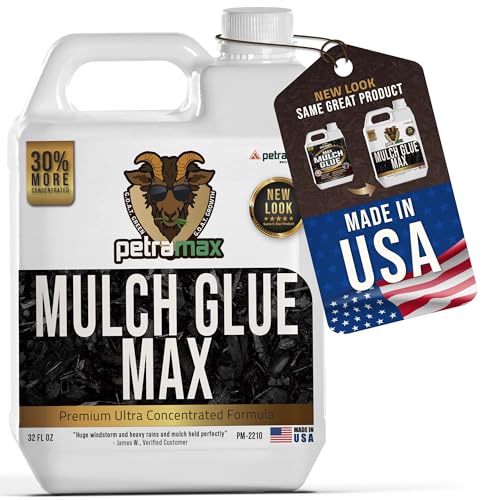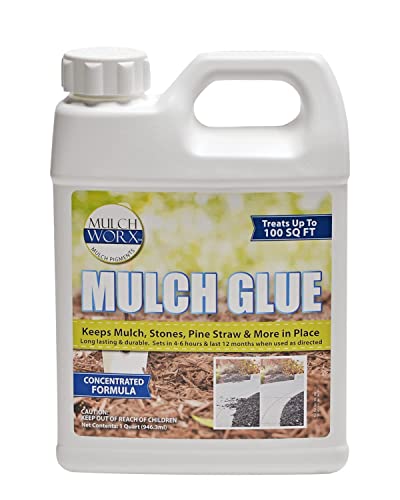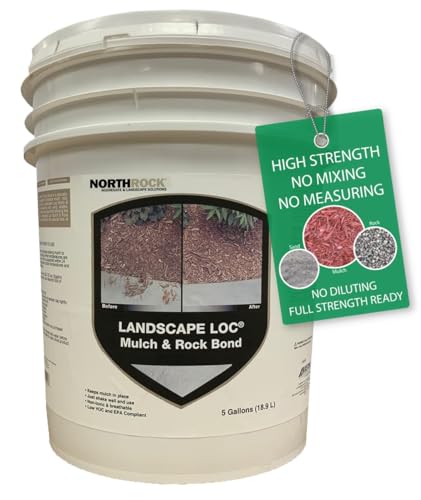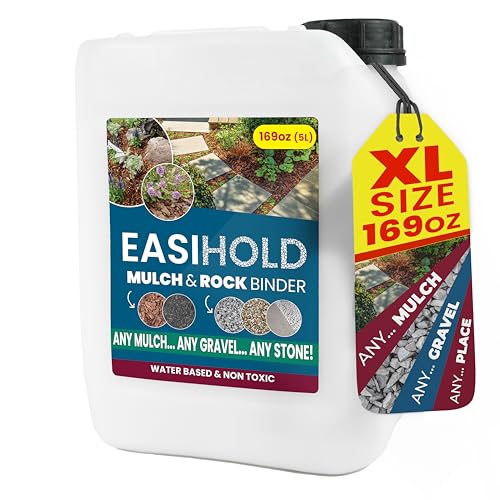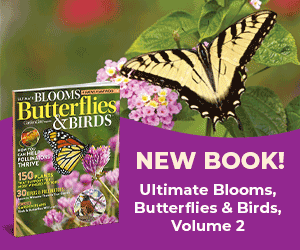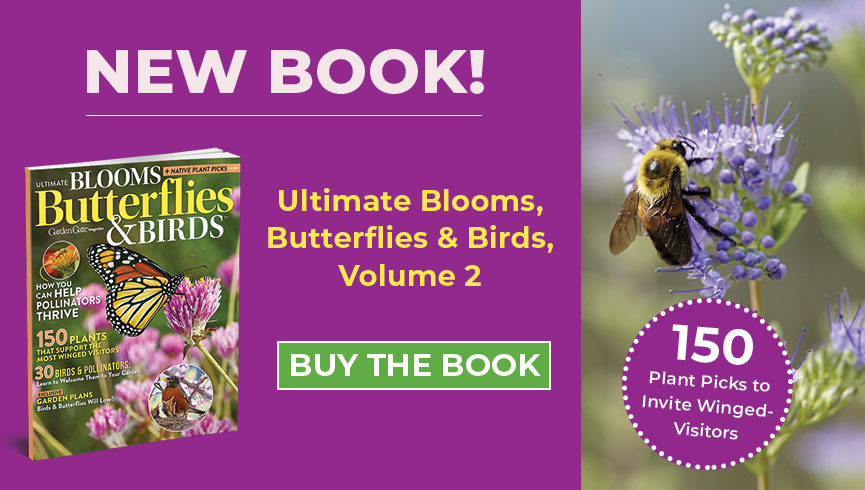If you're a gardener, we don't need to tell you that mulch can make or break a garden! As someone with experience planting seeds and cultivating a bed of flourishing flowers, we both know that mulch is an undeniably essential part of any garden’s health. But mulch doesn't always stay in place without the help of an adhesive. My personal favorite is the PetraTools Mulch Glue, but in this guide, we're talking about a handful of mulch glue options. Make sure you read all the way through so you don't miss out on our mulch glue buying guide!
Our Top Picks for Mulch Glues
- The Best Mulch Glues: Buying Guide
- People Also Asked
- How long does mulch glue last before needing to be reapplied?
- Is mulch glue safe for my plants and the environment?
- Does mulch glue keep away weeds?
- Does mulch glue need to be watered regularly?
- Can I apply mulch glue directly to the soil, or do I need to establish an extra layer of other materials first?
- What surfaces are ideally suited for applying mulch glue?
- How much coverage does one can of mulch glue provide?
- Is there a specific ratio of mulch to glue that I should use?
- Are there any special techniques used when applying mulch glue?
The Best Mulch Glues: Buying Guide
When selecting the ideal mulch glue for your project, there are a number of important product features to consider. This buyer’s guide will cover all the necessary information to make an informed decision.
How to Select the Best Mulch Glue
Price
Price is one of the most important factors to consider when purchasing mulch glue. Generally, high-quality adhesives tend to cost more than lower-quality varieties. It is essential to find a balance between quality and price to ensure that you get the best value for your money.
Quality
Another key factor to consider when selecting a mulch glue is its quality. High-quality adhesives are formulated with strong bonding properties and provide superior performance over time. It is important to look for adhesives that meet certain quality standards, such as ASTM or EN certification, to ensure they are reliable and safe to use.
Type of adhesive
Mulch glues come in various types, including acrylic, polyurethane, and rubberized compounds. Acrylic adhesives offer superior weather and UV resistance, while polyurethane adhesives have greater flexibility and elasticity properties. Rubberized compounds are suitable for heavier applications, such as outdoor landscaping projects. You will need to choose the correct type of adhesive for your project based on the intended application.
Application temperature range
The temperature range of a mulch glue should be taken into account when selecting an adhesive for a particular project, as well. Most types of adhesive will only cure within a certain range of temperatures, and therefore it is important to ensure that the selected adhesive is suitable for the intended application temperature range.
Open time
“Open time” refers to the length of time during which the glue remains workable after it has been applied. You should choose an adhesive with an open time that suits your needs since some adhesives have shorter open times than others.
Weather resistance
Weather-resistant glues are designed to retain their performance characteristics in extreme weather conditions, such as high temperatures or moisture exposure. Selecting an adhesive with superior weather resistance will ensure that your project is less likely to suffer from premature degradation due to environmental factors.
UV resistance
UV-resistant mulch glues are specially formulated to maintain their strength in direct sunlight over long periods of time without fading or discoloration due to UV exposure. These types of adhesives are ideal for projects exposed to direct sunlight and should be taken into consideration when selecting glue for outdoor applications.
Water resistance
Water-resistant glue provides superior performance when exposed to moisture or water over extended periods of time. It is important to select a glue that is specifically formulated for water resistance if the project will be regularly exposed to wet conditions.
Shelf life
Shelf life refers to how long an adhesive product can be stored before it begins to lose its effectiveness or becomes ineffective altogether. If you plan on storing the product for extended periods of time, then it is important to select an adhesive with a longer shelf life so that you can ensure it performs correctly when needed.
Setting time
Setting time refers to how long it takes for the glue to dry after being applied before attaining its final strength and bonding characteristics. Some glues have shorter setting times than others, so it is important to choose one with a suitable setting time depending on your project needs and timeline requirements.
Ease of application
It is important to select mulch glue that is easy to apply and requires little or no time for preparation, application, and cleanup. This will make sure your project runs smoothly and efficiently without any unnecessary setbacks due to difficult application processes or messy residue left behind on surfaces after use.
Color and opacity
Different types of mulch glue offer different color palettes or finishes depending on what you need from them (e.g., some may be transparent while others may offer more opaque options). Some glues may also darken after application due to their chemical compositions, so it is important to review this information beforehand in order to make sure they’ll fit your aesthetic needs properly once they’re applied.
People Also Asked
How long does mulch glue last before needing to be reapplied?
Mulch glue typically lasts for about one year before it needs to be reapplied. However, this timeframe can vary depending on the climate as well as various other factors.
Is mulch glue safe for my plants and the environment?
Yes! Mulch glue is safe for your plants and the environment as long as you use it as directed. The glue itself is not toxic, but it should be kept away from edible plants. Also, don't use it in any areas where runoff is likely to occur. It's always best to follow the manufacturer's instructions when using this type of adhesive.
Does mulch glue keep away weeds?
Yes! The nature of mulch glue is adhesive, meaning it can help you keep weeds out of your garden. Mulch glue creates a thick layer that prevents the germination and growth of weeds. This can be especially useful in areas where weeds and other invasive species have a tendency to take over.
Does mulch glue need to be watered regularly?
No, mulch glue typically does not need to be watered regularly. It is specifically designed to resist water and provide lasting adhesion. However, it may be beneficial to lightly mist the area once the adhesive has been applied in order to help ensure that it sticks properly.
Can I apply mulch glue directly to the soil, or do I need to establish an extra layer of other materials first?
You do not typically need to incorporate an extra layer of any type of material before applying mulch glue. However, you might find that mulch glue sticks to surfaces better if you lay down some type of non-porous surface first. This can be something as simple as cardboard or plastic. Additionally, if you are planning to apply mulch on top of the adhesive once it sets, you'll certainly want to use a non-porous material for the best possible results.
What surfaces are ideally suited for applying mulch glue?
When using mulch glue, the most ideal surface is a flat and non-porous area. This can include concrete and asphalt or plastic tarps, sheets, and liners. You'll also want to make sure that there are no cracks or holes in the surface before you apply mulch glue. This will ensure that a secure bond forms between the adhesive and the ground below.
How much coverage does one can of mulch glue provide?
One can of mulch glue typically provides enough coverage for an area measuring between eight and 10 square feet. But this can vary slightly depending on how thickly you apply the adhesive and how much material you plan on covering with it.
Is there a specific ratio of mulch to glue that I should use?
No, there isn't a specific ratio of mulch to glue that you should use when applying the adhesive. Simply make sure to use enough so that your entire surface area is covered evenly with a thin layer of adhesive.
Are there any special techniques used when applying mulch glue?
When applying mulch glue, it's important to make sure that you spread it evenly over your surface area while taking care not to leave too much excess or create pockets or puddles of adhesive. Doing so may cause ponding or pooled areas where water can accumulate instead of draining away properly. Also, when possible, it may be beneficial to employ a roller or squeegee-type tool in order to more evenly spread out the adhesive over wider areas such as patios or driveways before laying down your material.




